Construction workers are responsible for the construction of buildings and other structures. Construction workers typically work outdoors, in all kinds of weather and physical conditions. Construction workers must have a high level of physical stamina and endurance to complete their duties. This job requires hard work, manual labor, problem-solving skills, coordination, and attention to detail. These qualities must be communicated on your resume when applying for this job. To stand out from the competition when applying for a construction worker position, you will need to create an impressive resume highlighting your relevant experience and any transferable skills that may not be immediately obvious. Read on for our expert advice on how you can make the perfect construction worker resume.
Construction Worker Resume Example

Download This Construction Worker Resume as PDF
Construction Superintendent Resume Example
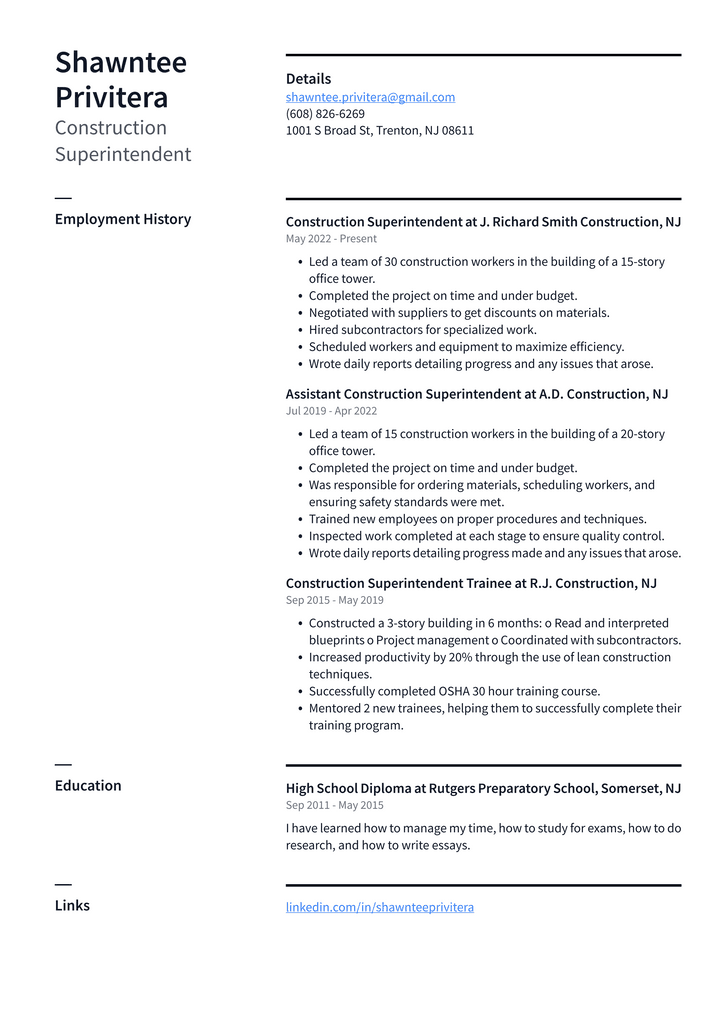
Download This Construction Superintendent Resume as PDF
Construction Manager Resume Example
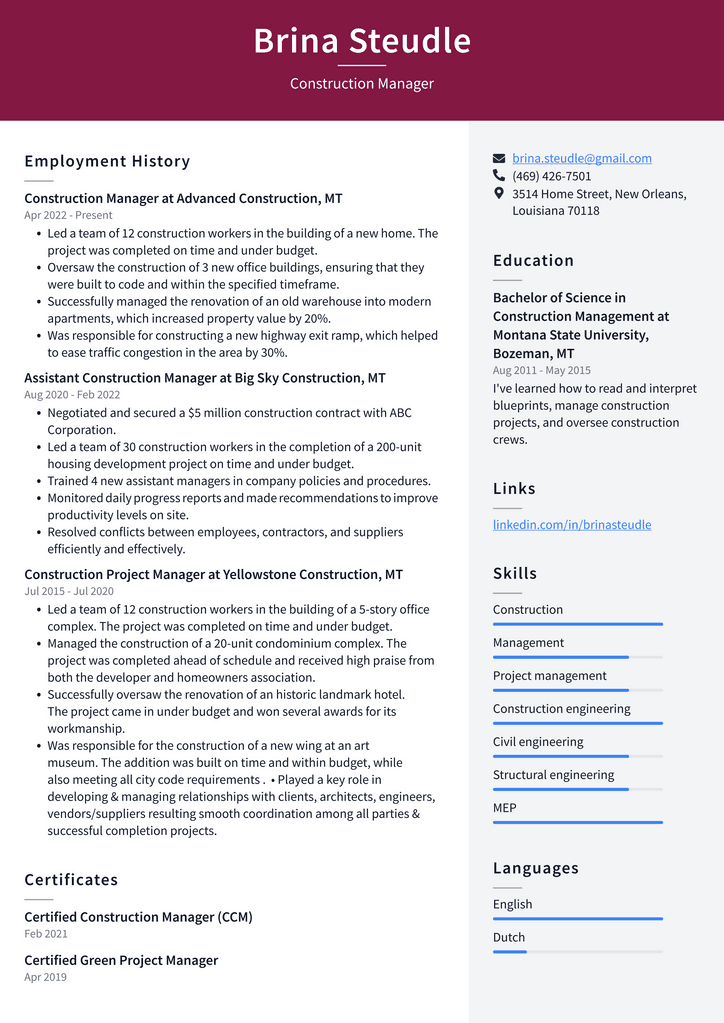
Download This Construction Manager Resume as PDF
Construction Project Manager Resume Example
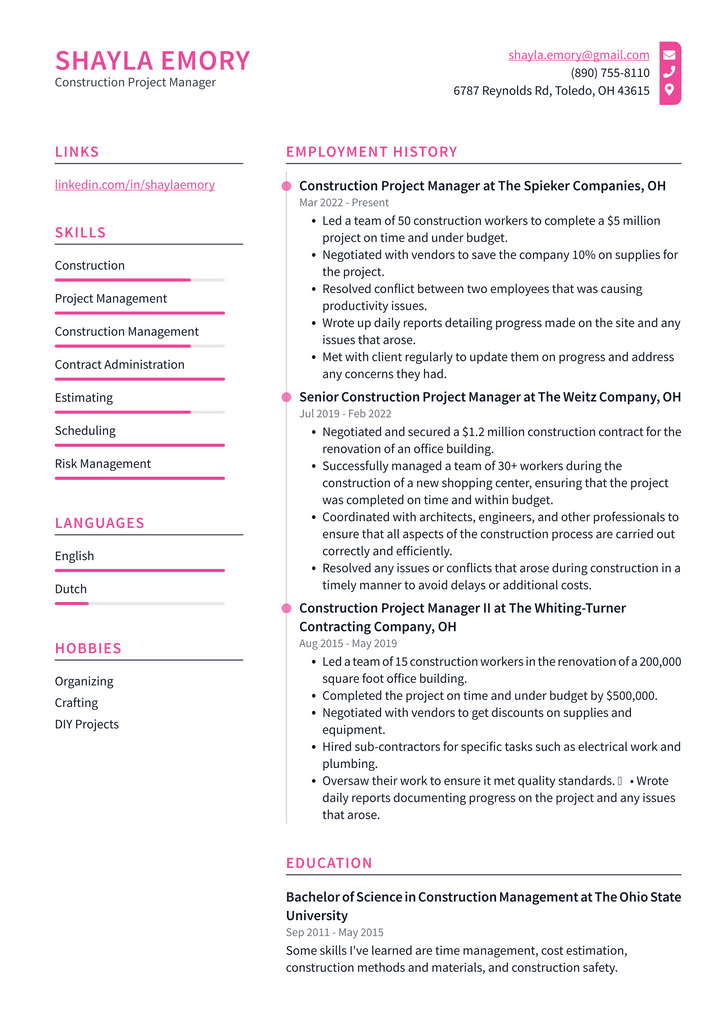
Download This Construction Project Manager Resume as PDF
Construction Laborer Resume Example
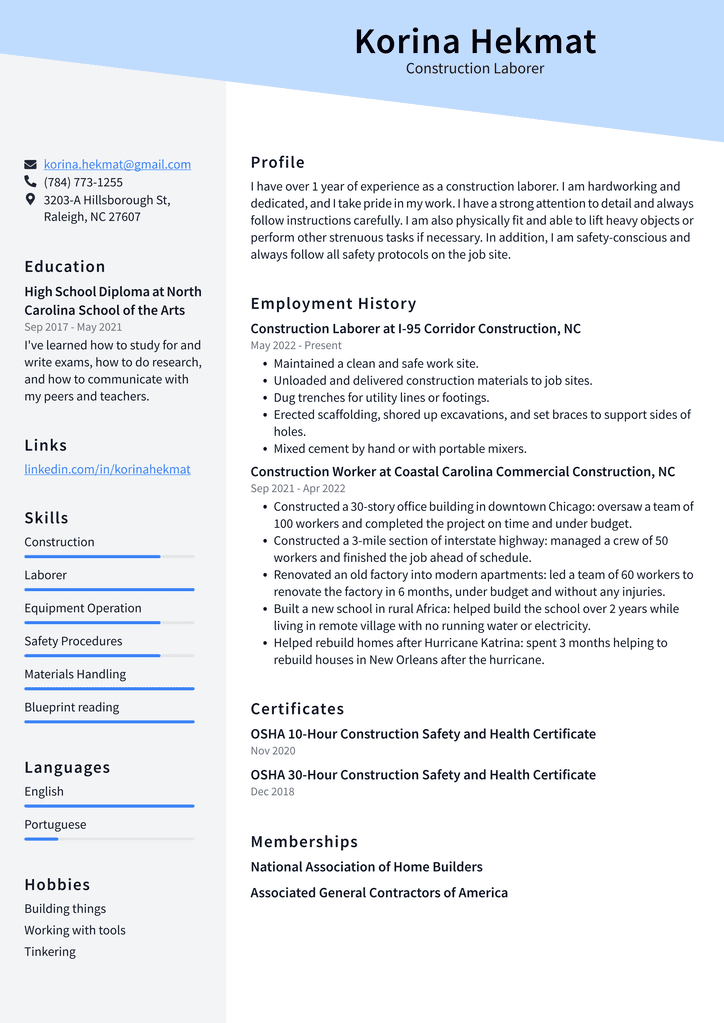
Download This Construction Laborer Resume as PDF
Construction Superintendent Resume Example
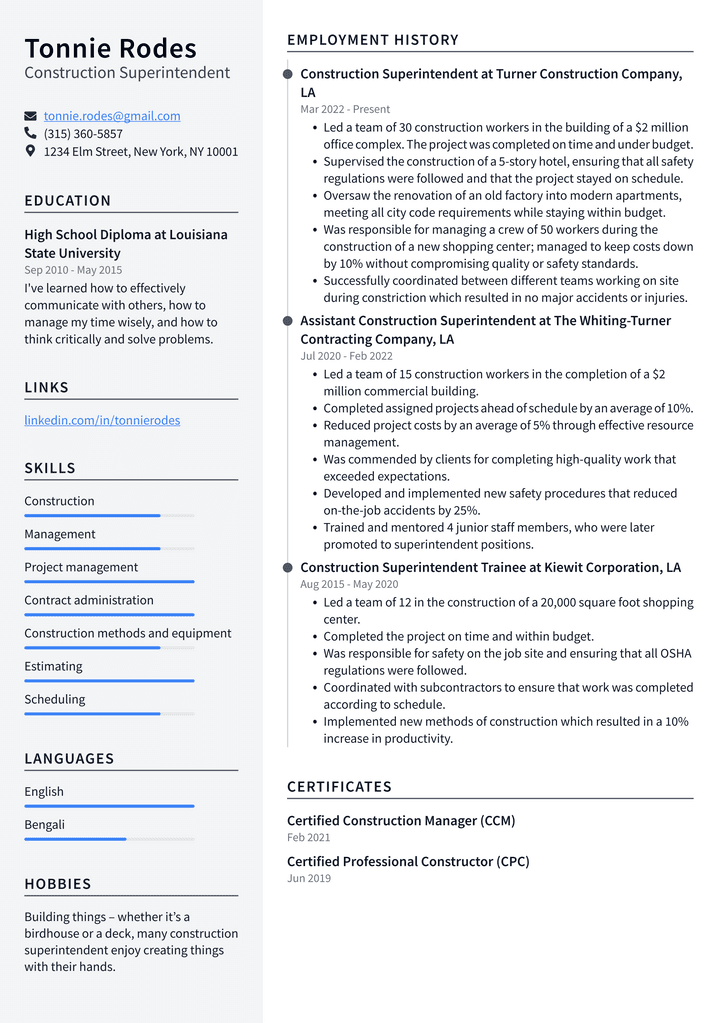
Download This Construction Superintendent Resume as PDF
Construction Estimator Resume Example
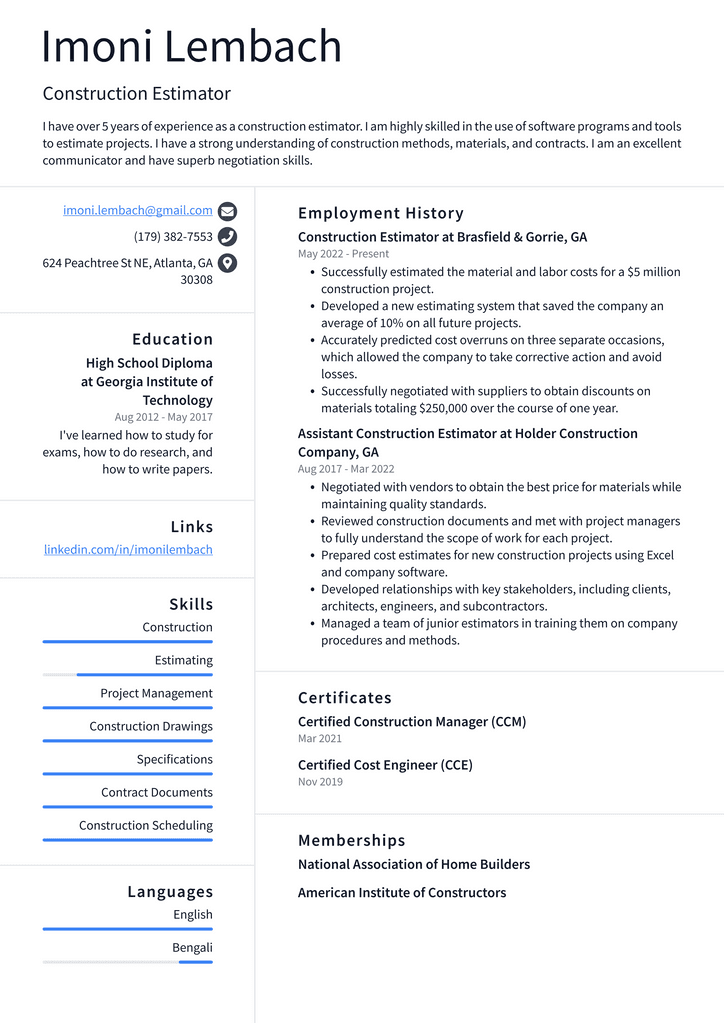
Download This Construction Estimator Resume as PDF
Choose a format that communicates your skills
A construction worker’s resume should be designed in a format that will communicate her skills to the hiring manager. It would help if you chose an arrangement that prioritizes your work experience and related skills, making sure to downplay any education or training you may have. A combination resume may be the best option if you have a lot of relevant experience but aren’t sure what format to use. This type of resume includes your employment experience and an education section at the bottom. Alternatively, a functional resume may be the best format for you if you don’t have much relevant experience to list on your resume. On this type of resume, you should place your skills and work history towards the bottom. Remember that your resume’s format will be crucial in getting an interview. The hiring manager will only spend an average of 30 seconds reading your resume, so you must ensure they see everything they need to know in that short time. Choosing the wrong format could cost you the job opportunity before you even get to speak with the hiring manager.
Highlight your experience and strengths
In this section of your construction worker resume, you will want to highlight your work experience and list all of the jobs you have held in the past. It would help if you also elaborated on the skills you have acquired and any skills that have been developed on the job. Make sure to list your work experience in chronological order, with the most recent job listed first. This section is also the perfect place to discuss any strengths related to the construction worker position you are applying for. You can also include transferable skills in this section of your resume. However, you should communicate these skills in a way that is relevant to the construction worker position you are applying for. For example, if you have experience working in an office, you should highlight skills like attention to detail, problem-solving, and good communication. These are all skills that are essential in a construction worker.
Add any applicable recognizable skills
Suppose you have a skill widely recognized in the construction industry but not necessarily directly applicable to the construction worker position you are applying for. In that case, you should include it in the relevant section of your construction worker resume. For example, if you have experience welding but don’t work in the construction industry, you should put this on your construction worker resume under skills. If the hiring manager sees that you have a highly valued skill in the construction industry, they may be more likely to hire you. They may also be more likely to give you a higher salary than usual if they value your skill. However, remember that most skills must be relevant to the construction industry to be included in your resume. If a hiring manager sees that you have a skill that isn’t relevant, it may hurt your chances of being hired for the position. Therefore, you should only include recognizable skills valued by the construction industry if you want to increase your chances of being hired for a construction worker position.
Use a chronological resume if you have a lot of experience
If you have significant experience in the construction industry, you should use a chronological construction worker resume. This type of resume is most effective for applicants with ten years or more experience. Your chronological construction worker resume should list your work experience in reverse chronological order. Your most recent job will be listed first, and your earliest work experience will be listed last. This type of resume is best for applicants with significant experience because it allows the hiring manager to see your most recent work experience first. A hiring manager may pass over an applicant with less experience who uses a functional or combination resume.
Use a functional resume if you have little work experience
A functional construction worker resume is an ideal option for applicants new to the workforce or with limited experience in the construction industry. This type of resume is perfect for construction workers with no work experience or minimal work experience. Your functional construction worker resume should list your skills at the top of the resume. The hiring manager will likely look at your skills first, so you must list your skills at the top of your resume. You should list skills relevant to the construction industry first, followed by any other skills you feel are essential. You can also list any education related to the construction industry if it is relevant. Once you have listed your skills, you should list your work history at the bottom of your construction worker resume. Your work history should be listed chronologically, with your most recent job first.
Use a combination resume if you have a lot of experience and recognizable skills
A combination construction worker resume works best for applicants with significant work experience and skills valued in the construction industry. This type of resume is an excellent option for applicants who have experience working in multiple sectors and construction. In this section of your construction worker resume, you will want to list your skills and any education related to the construction industry. You should list your skills at the top of your resume and your education below your work history. Skills should be listed in importance, with the essential skill listed first. You can also list skills that may not be immediately obvious on your construction worker resume. For example, if you are an engineer but work in the construction industry, you can list engineering as a skill on your construction worker resume.
Conclusion
A construction worker’s resume is a crucial document if you want to get hired for this type of job. The hiring manager will be looking for specific skills and experience, so you must ensure that your resume communicates these traits. When creating your construction worker resume, you should select a format that prioritizes your work experience and related skills, making sure to downplay any education or skills that aren’t relevant to the position you are applying for. You should then highlight your experience and skills, making sure to highlight any strengths that are relevant to the work. Finally, you should list any relevant skills valued in the construction industry if you want to increase your chances of being hired for a construction worker position.